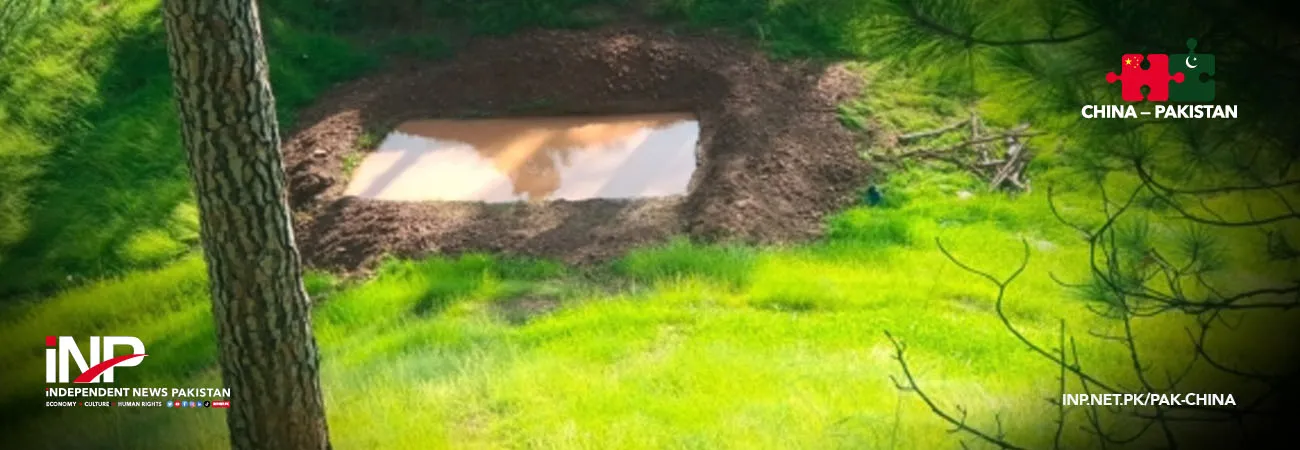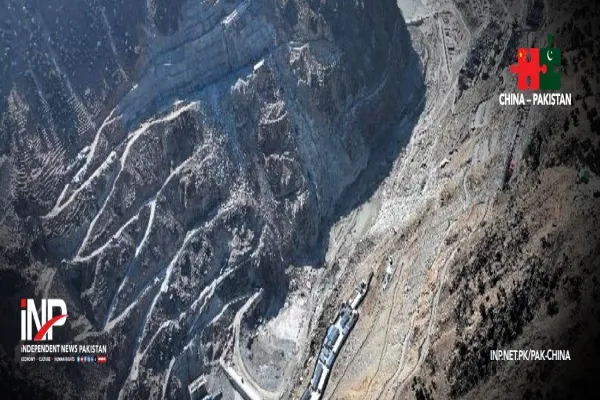i NEWS PAK-CHINA
The recent monsoon floods, which have claimed more than 300 lives across Khyber Pakhtunkhwa, Gilgit-Baltistan, and Azad Kashmir, have once again underscored Pakistan’s severe vulnerability to climate change. According to Gwadar Pro, experts warn that rampant deforestation is amplifying the destruction caused by heavy rains and flash floods.
“The trees that once held the mountains together are gone. Every year the floods get worse,” said Shazia Bibi, a farmer from Azad Kashmir whose fields were washed away this season. Official figures confirm the trend. Pakistan’s forest cover has fallen from 3.78 million hectares in 1992 to just 3.09 million hectares in 2025, leaving only five percent of total land under forests, the lowest in South Asia.
In Azad Kashmir, forest cover dropped from 46 percent in 2000 to 39 percent in 2020, a decline directly linked to worsening floods and landslides. “Deforestation is dismantling Pakistan’s first line of defense against floods,” said Dr. Pervaiz Amir, a senior environmental economist.
“The cost in human lives and economic damage is far greater than any short-term gains from logging or land use.” By contrast, China has emerged as a global leader in afforestation and flood management. Since 2012, it has planted over 66 million hectares of trees, raising forest coverage above 25 percent and contributing nearly one-quarter of the world’s new forests. Environmentalist Professor Ma Jun described the effort as “strategic, strengthening food security, water security, and disaster resilience.”
China’s response to its 1998 floods offers a model for Pakistan. Following that disaster, Beijing launched massive reforestation and watershed management programs, restored wetlands, and invested in “sponge cities”—urban centers designed to absorb rainfall and reduce runoff. These measures cut flood peaks by up to 30 percent. Recently, Lhasa in southwest China's Xizang has completed afforestation of nearly 72,000 hectares and planted over 120 million seedlings in 4 years, with soil erosion in the afforestation areas reducing by 60% according to the latest data.
Experts note that Chinese strategy extended well beyond tree planting. It included strict river zoning to prevent construction on floodplains, terracing and check dams in hilly regions to slow water flow, and eco-agriculture practices to protect soil cover. Advanced early warning systems and community-level disaster drills further enhanced resilience.
Analysts argue that Pakistan could adopt similar measures by combining reforestation with better river management, zoning laws to restrict construction in flood-prone areas, and the development of urban water-absorption infrastructure. Additional priorities include restoring wetlands and lakes degraded by unchecked urbanization, improving drainage systems, and investing in rainwater harvesting.
Policy experts also stress the importance of governance reforms. They recommend strict bans and penalties against tree cutting, curbing illegal logging, ensuring transparent use of climate finance, and providing alternative livelihoods to communities dependent on forests. At the grassroots level, community-driven initiatives are showing promise. In Azad Kashmir, a schoolteacher, Usman, has pioneered rainwater harvesting to revive dried aquifers and springs, a one-man movement now supported by hundreds of volunteers.
He believes empowering local welfare organizations could accelerate conservation. “If our institutions want to face this storm, forests can be replanted within days by working with local organizations on an emergency basis,” he said. “Funds should be publicly disclosed, and clear targets set for where and how many trees are planted. Only then can we reverse this destruction.” Experts warn that without urgent reforms in afforestation, watershed management, and environmental protection, Pakistan will remain highly exposed to recurring floods, heatwaves, and droughts in the years ahead.
Credit: Independent News Pakistan (INP) — Pak-China









